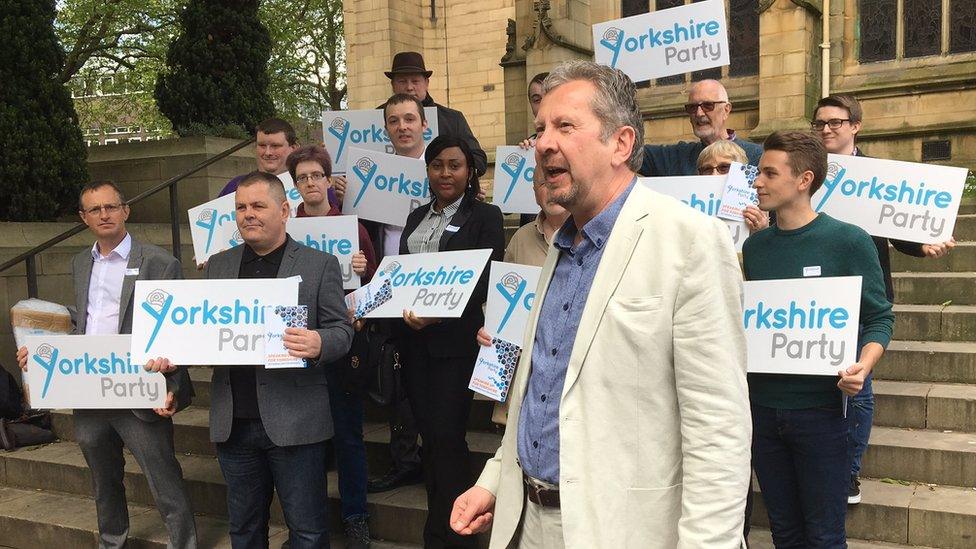Say Yes To Tess: Turning a doomed election campaign into a musical
- Published
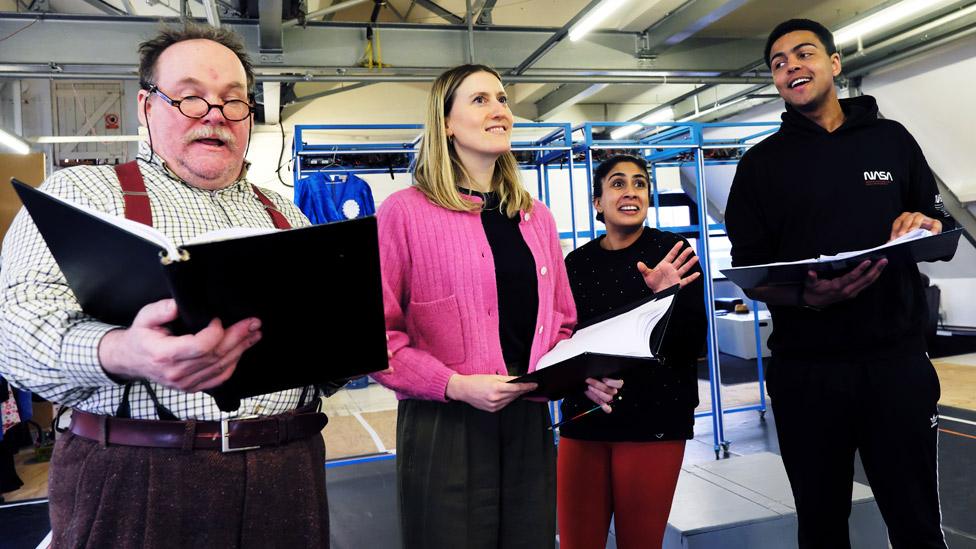
Tess Seddon (centre) with the cast of Say Yes To Tess
Five years ago, Tess Seddon agreed to stand in a general election for the Yorkshire Party. She won 303 votes, 33,000 behind the victor. She has now turned her doomed journey through the British democratic system into a stage musical, which has just opened in Leeds.
Seddon was moving from London back home to Yorkshire, unable to afford her rent after failing to make it as a theatrical success in the capital, when she happened to see a man speaking at a conference.
"He was wearing this bright blue suit in the colours of the Yorkshire flag. He did the speech all in rhyming couplets and ye olde English, and he was quoting Shakespeare's 'We few, we happy few, we band of brothers.'
"I just thought, oh my gosh, what is happening in Yorkshire?"
The man giving the speech was a member of the Yorkshire Party, which has been campaigning for a devolved assembly for the region since 2014.
"I immediately thought it'd be an amazing musical. The way he delivered the speech was so musical, and it was the time of Brexit and Donald Trump. I was like, is this an extreme Brexit, like a Yexit?"
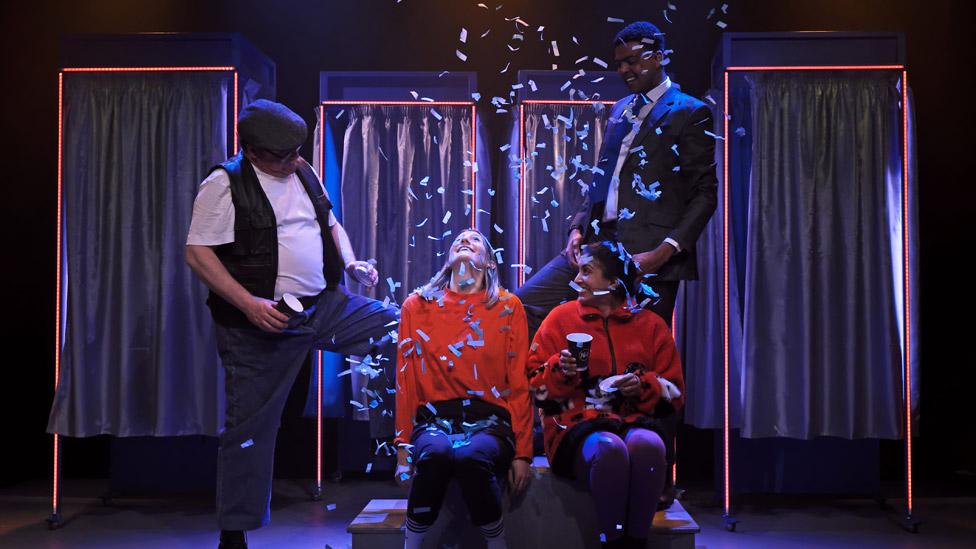
In the name of research for a possible show, Seddon gatecrashed the Yorkshire Party conference, which she says turned out to be "20 people in a room in York".
After initially viewing them as eccentric, she saw how seriously they took discussions about what they would do and change if they had power in Yorkshire - and started to question her own involvement in politics.
"I had a moment where I just thought, oh gosh, what do I do? I don't do anything. I vote every four or five years. Maybe actually the fact that they believe they can change things is a more hopeful way to live.
"But then I thought, well, there's no musical in this because it's not that funny and I left it alone."
Then, when the 2017 general election was announced, the party tweeted to ask for people to stand. "I retweeted it as a joke, by no means saying 'I'll stand.' They messaged me instantly saying, 'We'd love you to stand.'"
Seddon agreed to meet and they told her they needed more candidates, and she could do and say whatever she wanted - as long as it wasn't racist.
"I thought, well, when do you ever get asked to stand in a general election? Maybe I was a bit naive but I thought I should just go with it and maybe it would be interesting."
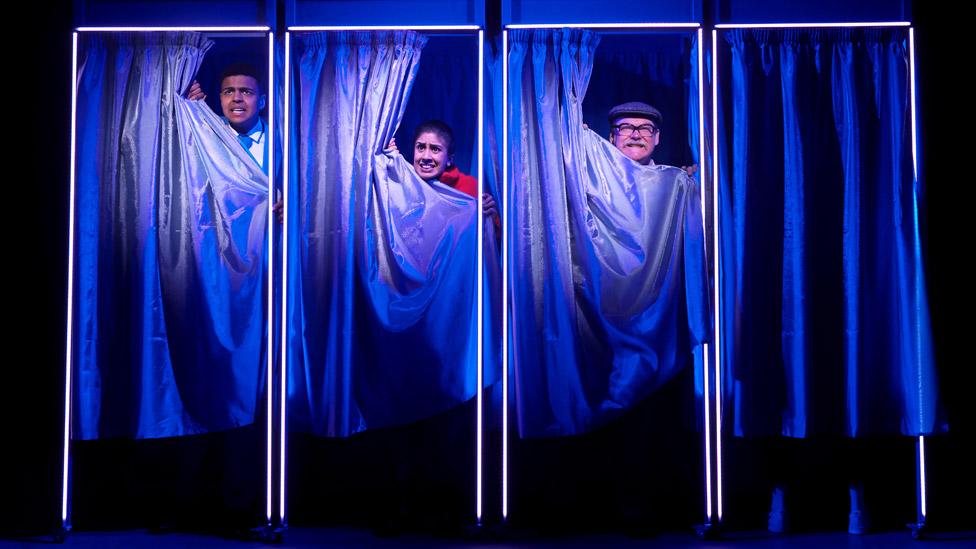
Jazzed-up voting booths are used on stage
The idea of writing a show was still in the back of her mind, but she agreed with the idea of a Yorkshire assembly, and putting herself up for election became "a really transformative experience", she says.
"It got more and more serious. I had quite a few people saying, 'What the hell are you doing? You shouldn't be messing with this. You're messing with something you don't understand.'
"Then I went knocking on doors and I was terrified because politics was - it still is - so divisive, especially after the referendum, and there was such anger that seemed to be portrayed in the news. Loads of people just said they didn't vote but they'd never had a politician on their door."
Her stock question on the doorstep in Leeds North East was whether people felt represented by Westminster. No-one said yes. (That may well be the same everywhere in the UK, she accepts.)
"I learned loads of people don't vote, but they still really care about politics. They just don't see the connection between their lives and their votes," she says.
Seddon also felt the unpleasant side of politics when she says she was asked to pull out and a supporter of a rival party, who was afraid of her taking their votes, told her "we know where you live" because all candidates' addresses are published.
"None of the men got threatened, no-one else got asked to drop out. So there's something that feels quite scary about a woman standing."
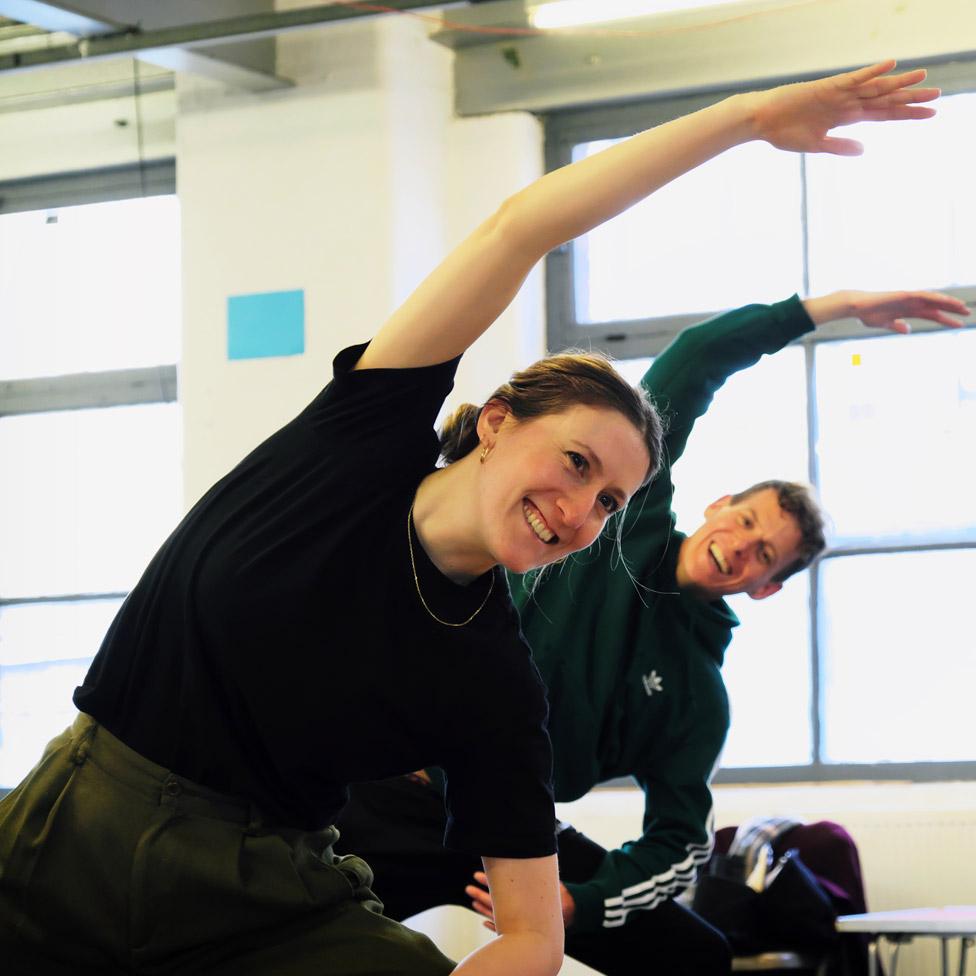
Tess Seddon in rehearsals for Say Yes To Tess
Despite that, more people should think about becoming politicians, she believes.
"There's a line in the show - 'If you don't think you should be one, you're exactly what we need.'
"I think that's the problem. The best, most giving, most connected people to their communities never think, I should run and do this. And actually they are the people we need."
Seddon has now written the musical, titled Say Yes To Tess, and has made a podcast called Politics Could Never, external with six young people from Leeds. They knew very little about politics before, but felt much more "heard and seen" afterwards, she says.
"The more we participate in it, the healthier it is. It's not a spectator sport. It just doesn't serve anyone if it's corrupt, if it's for the same people from the same school. And it's just so off-putting.
"Making a musical about politics, it's really important that we made it really fun and entertaining and uplifting because politics is so depressing."
Politics vs musicals
The show, which Seddon has also co-directed and stars in, is "for people who don't feel like politics is for them", she says.
"I want them to leave thinking, yeah, I'm going to vote, I'm going to engage in it, I'm going to participate in politics. I want people to leave feeling hopeful about our democracy."
Despite coming a distant fifth in her constituency in the 2017 election, getting 303 votes was an "amazing" result, she says. But she has not stood again.
"I think we've all got our skills, and mine might be musical theatre," she explains.
"I am left torn and the show does leave a question open. I feel like at the moment, my power to change things probably is through the medium of musical theatre.
"But who knows in the future whether politics will call me back. I haven't stood yet. It's not the end. It's maybe not the end."
A typically non-committal politician's answer. She'll go far.
Say Yes To Tess is at the Leeds Playhouse until 2 April and at Camden People's Theatre in London from 5-16 April.
Related topics
- Published18 May 2017
